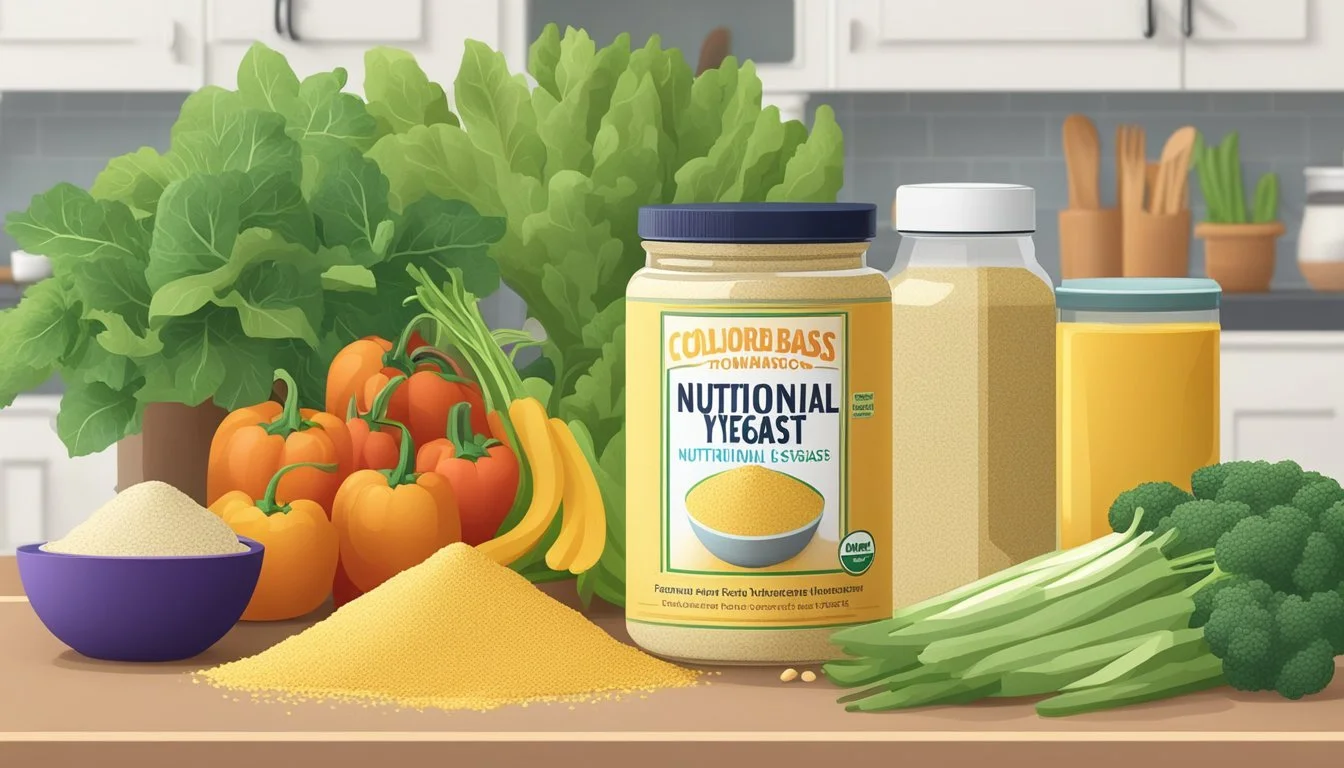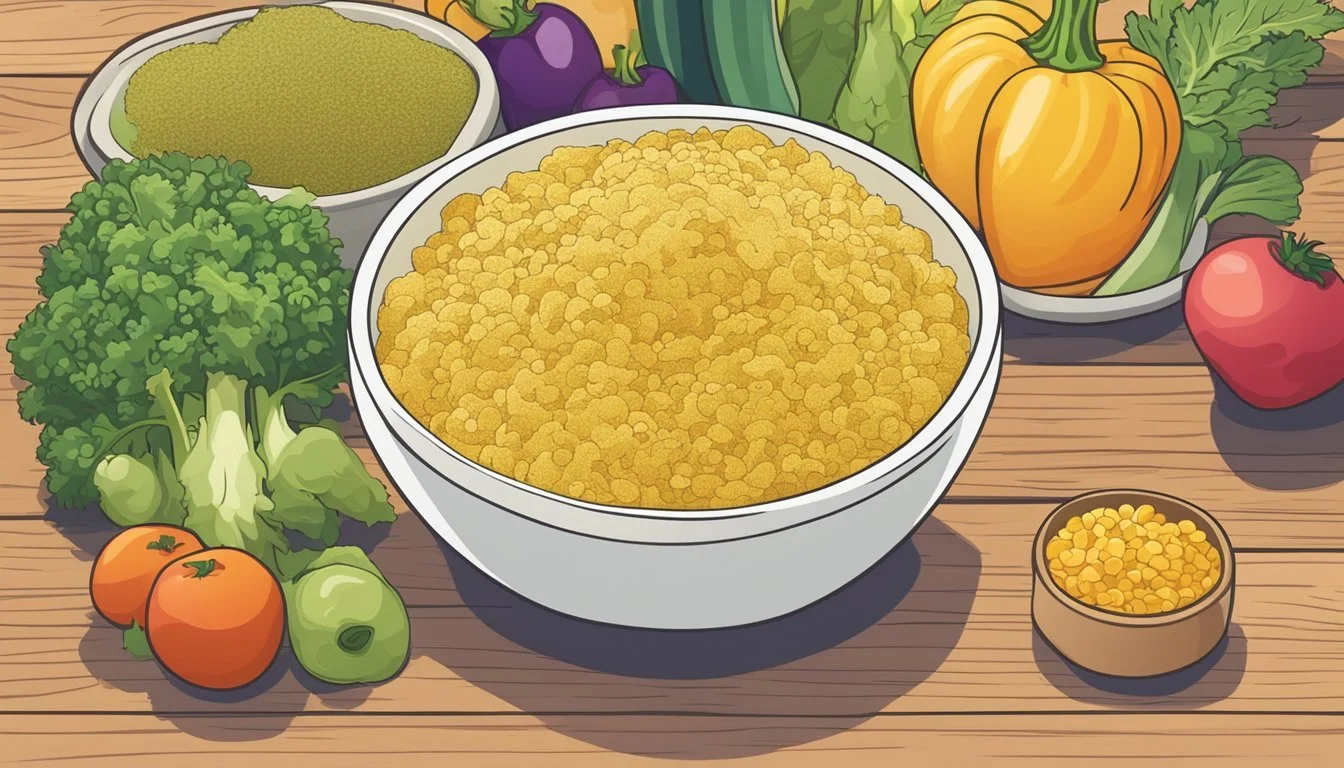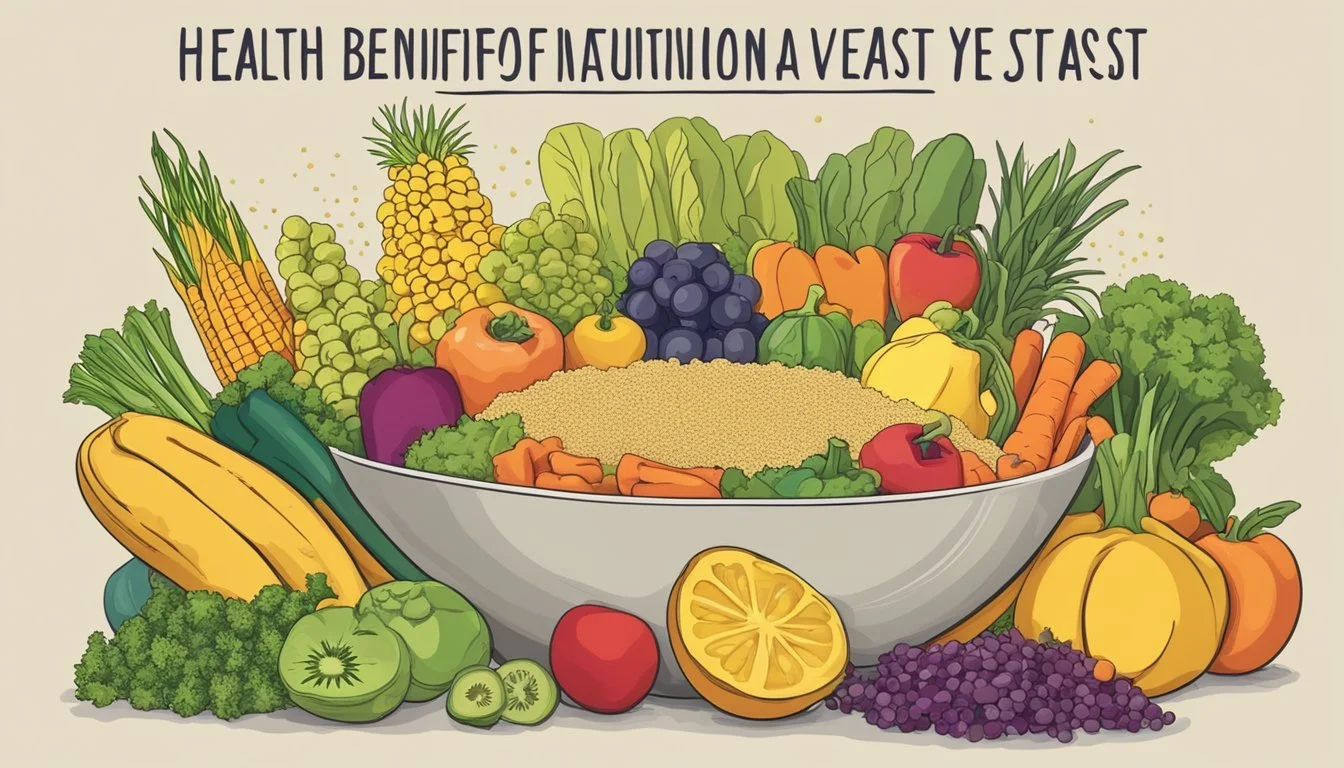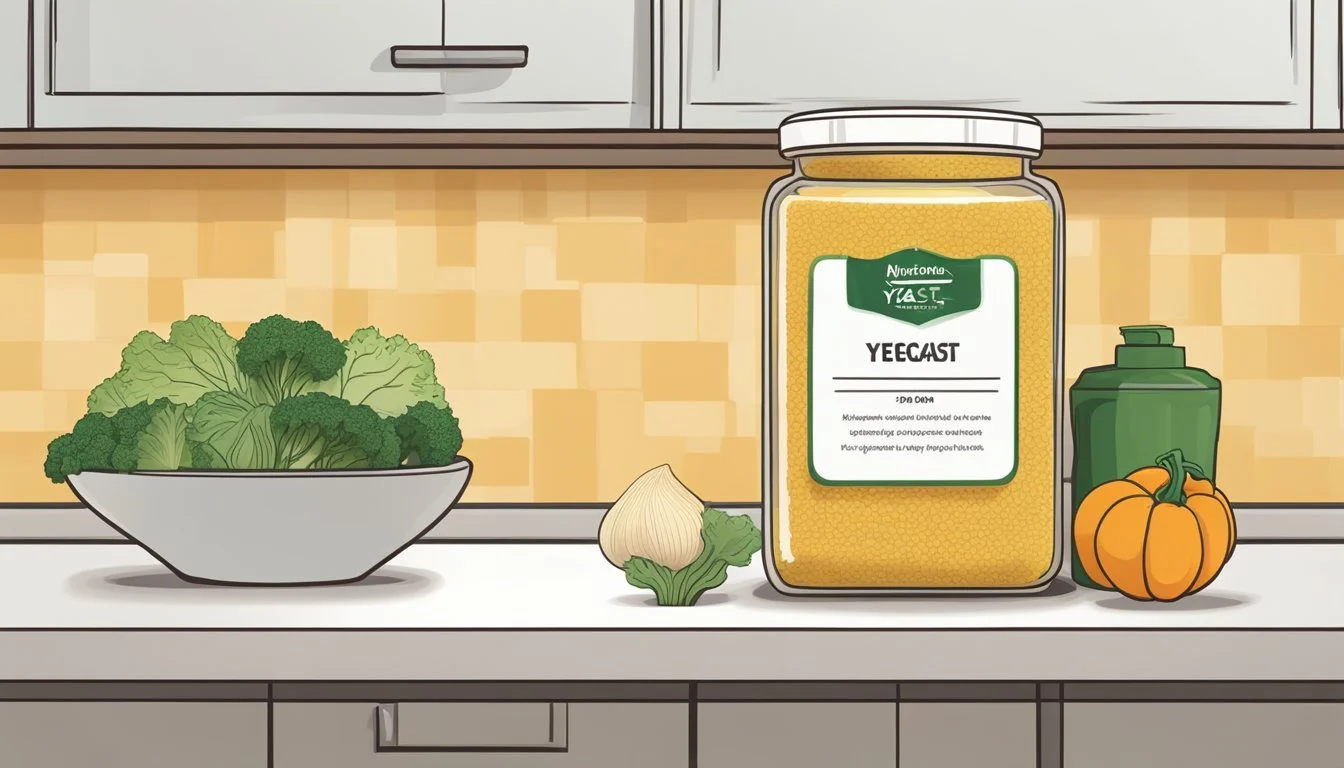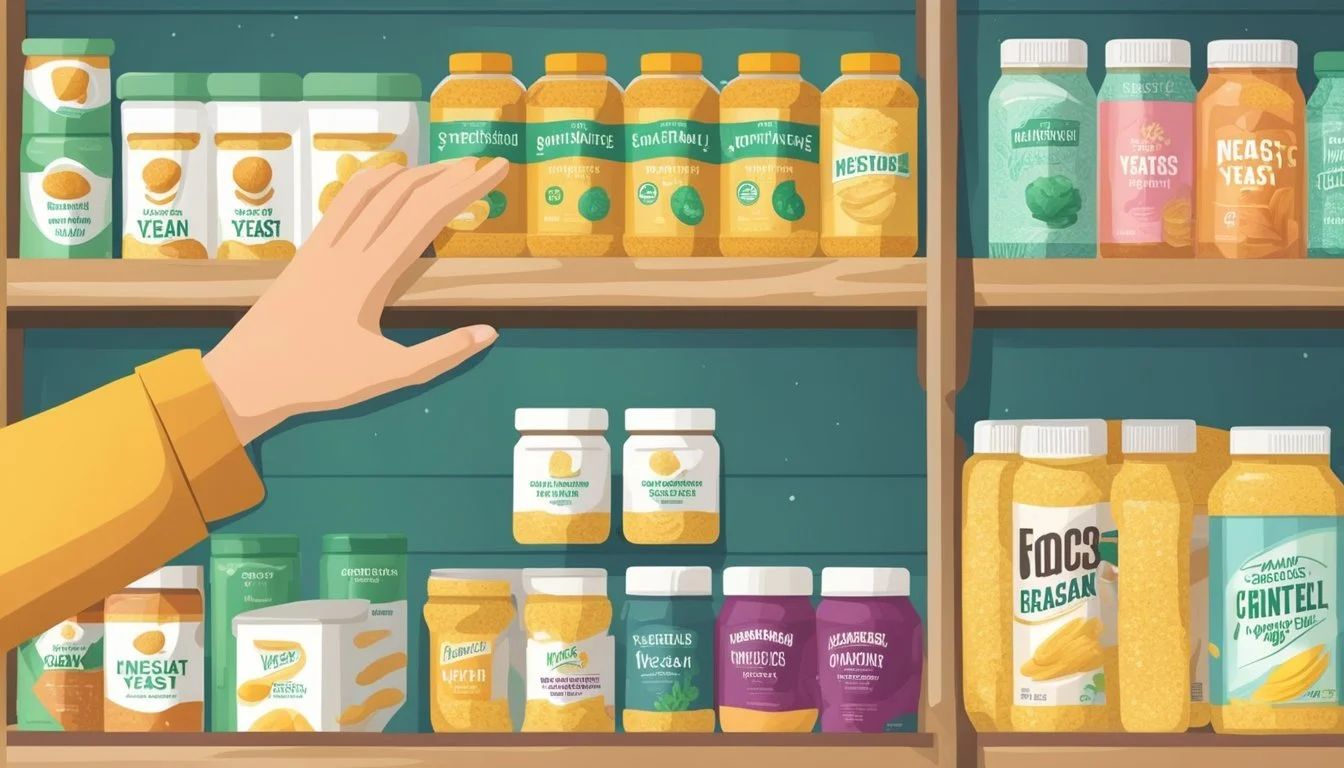Is Nutritional Yeast Vegan?
Unveiling the Facts on this Popular Seasoning
Nutritional yeast is a deactivated yeast that is commonly used in vegan cooking. It is prized for its cheesy, nutty flavor and its ability to add depth to various dishes, from soups and salads to pastas and popcorn. Also known as "nooch," this yellow-hued flake or powder is indeed vegan, as it is made from Saccharomyces cerevisiae, a species of yeast that is grown on molasses, harvested, washed, and then dried to deactivate it—leaving it unable to ferment. It is free from animal products and is produced in a manner that does not involve animal exploitation or cruelty.
Moreover, nutritional yeast is not only vegan but it also offers a host of nutritional benefits, making it an excellent supplement to the vegan diet. It is particularly valued for its rich content of B vitamins, including B12, which is often a concern in vegan nutrition. This is because vitamin B12 is typically found in animal products, and nutritional yeast provides a plant-based source of this essential nutrient. Its inclusion in a vegan diet helps maintain healthy nerve function and the production of DNA and red blood cells.
In addition to B vitamins, nutritional yeast is a source of protein and contains various minerals such as zinc, selenium, manganese, and molybdenum. It is also often fortified with additional nutrients, enhancing its profile as a convenient dietary supplement. As nutritional yeast fits the vegan criteria and simultaneously addresses some nutritional concerns, it has become a popular ingredient for those following a plant-based lifestyle.
What Is Nutritional Yeast?
Nutritional Yeast is a savory, vegan food product widely used for its nutty, cheesy flavor and nutritional benefits.
The Basics Of Nutritional Yeast
Nutritional Yeast consists of Saccharomyces cerevisiae cells that have been harvested, washed, and dried with heat to deactivate them. It is an inactive yeast, so it does not cause dough to rise as baking yeast would. Typically, it comes in the form of yellow flakes or powder and is readily utilized as a condiment or food additive.
Types Of Nutritional Yeast
There are primarily two types of Nutritional Yeast: fortified and unfortified.
Fortified Nutritional Yeast: This type has additional vitamins and minerals added during manufacturing. It is especially rich in B vitamins, including B12, which is essential for those following a vegetarian or vegan diet.
Unfortified Nutritional Yeast: This variety does not have added nutrients and only contains the vitamins and minerals that are naturally produced by the yeast cells during growth.
Both types are excellent sources of nutrients and protein, making them beneficial food supplements for various diets.
Nutritional Profile
Nutritional yeast is recognized for its impressive nutritional content, offering a variety of essential nutrients, particularly proteins, a range of vitamins and minerals, and notable quantities of B-vitamins, including vitamin B12, when fortified.
Protein Content
Nutritional yeast is a complete protein source, meaning it contains all nine essential amino acids that the body cannot synthesize on its own. Specifically, nutritional yeast provides approximately 8 grams of protein per serving (about 2 tablespoons), making it a significant protein contributor in a vegan diet.
Vitamin And Mineral Content
Beyond its protein offering, nutritional yeast boasts a diverse profile of vitamins and minerals. It is especially rich in B-vitamins, iron, and potassium. While the iron content varies, with fortified versions providing about 20% of the Daily Value (DV) and non-fortified around 5% DV, both forms are beneficial. Additionally, a good source of fiber, selenium, and folate can be found in nutritional yeast, contributing to overall dietary needs.
B-Vitamins and Fortified Nutritional Yeast
Fortified nutritional yeast is an especially potent source of vitamin B12, an essential nutrient often challenging to obtain from plant-based sources. A single serving can contain between 35-100% DV of thiamine (vitamin B1). Moreover, it can offer significant levels of other B-vitamins, including folate and selenium—nutrients important for various bodily functions, including energy metabolism and antioxidant protection.
Is Nutritional Yeast Vegan?
In assessing whether nutritional yeast is suitable for a vegan diet, one must consider its composition and any potential animal-derived ingredients. This section elucidates the vegan nature of nutritional yeast through its pure plant-based composition and intentional absence of animal products.
Vegan Composition
Nutritional yeast is a single-celled organism from the fungi kingdom. Its primary components include:
Yeast cells (Saccharomyces cerevisiae)
B vitamins (often fortified)
The yeast cells are grown on sugarcane or beet molasses, harvested, and then deactivated through heat. During the manufacturing process, B vitamins might be added, which are typically synthesized through industrial microbiological processes, adhering to vegan criteria.
Animal Product Absence
A fundamental aspect of veganism is the exclusion of animal exploitation and any form of animal product consumption. Nutritional yeast aligns with these principles, as it:
Does not contain dairy, honey, or any other animal-derived substances.
Is processed using methods that do not involve animal testing or animal exploitation.
When scrutinized through the lens of dietary restrictions and ethical standards of veganism, one can conclude that nutritional yeast is entirely plant-based and dairy-free. It represents a cruelty-free alternative to many traditional flavor enhancers and is embraced in vegan cooking for its cheesy, umami-rich flavor profile.
Health Benefits Of Nutritional Yeast
Nutritional yeast is acclaimed for its impressive nutrient profile, offering a complete protein and a spectrum of B-complex vitamins which are crucial for metabolism and the nervous system.
Nutritional Advantages
Nutritional yeast delivers a substantial amount of complete protein, containing all nine essential amino acids that the body cannot synthesize itself. It is an excellent source of B-complex vitamins, which play a vital role in converting food into energy, aiding in metabolism efficiency. Additionally, it contains antioxidants, which help in protecting the body from damage by harmful free radicals.
Impact On Vegan Diets
For individuals following vegan or vegetarian diets, nutritional yeast is particularly beneficial. It fills potential nutrition gaps by providing essential nutrients that are less commonly found in plant-based diets, such as B-complex vitamins including vitamin B12, when fortified. This ensures a more balanced diet and supports overall health benefits.
Support Of The Nervous System
Nutritional yeast supports the nervous system through its rich supply of B-complex vitamins. These vitamins, specifically B12, are essential for maintaining a healthy nervous system and play a critical role in the formation of red blood cells and metabolism of cells. Through regular consumption, individuals could potentially improve neurological function and reduce the risk associated with certain nerve-related conditions.
Culinary Uses
Nutritional yeast is a staple in vegan cooking for its ability to impart a cheesy and nutty flavor to dishes without any animal derivatives. It is versatile, lending depth with its umami essence to many recipes.
Flavor Profile
Nutritional yeast boasts a savoury, nutty, and cheesy flavor, making it a popular choice for imparting a rich umami taste to vegan dishes. Its ability to mimic the taste of cheese without any dairy content is particularly valued in vegan cooking. The depth of flavor it adds is essential in creating satisfying vegan recipes that please even the most discerning palates.
Cooking And Baking
In cooking, nutritional yeast can be sprinkled on top of various dishes, including pastas and salads. It effortlessly blends into liquids, which makes it an ideal ingredient for cheese sauces and gravy. Vegan chefs commonly use it to enhance the flavor profile of soups and stews.
For baking, nutritional yeast helps create a "cheesy" crust or topping and can be used in homemade breads for an extra dimension of taste. It also acts as a seasoning and flavor-enhancer for homemade snacks such as popcorn or kale chips.
Vegan Cheese Alternatives
Nutritional yeast is a foundational ingredient for many vegan cheese alternatives. It is used to replicate the flavor of cheese in:
Vegan parmesan: Ground nuts or seeds, such as almonds or sunflower seeds, are blended with nutritional yeast to mimic the texture and taste of parmesan cheese.
Cheese substitute: It serves as a base for creating numerous vegan cheese products, from soft cheese spreads to firm block cheeses.
Cheese sauce: When mixed with plant-based milks and thickening agents, nutritional yeast helps in creating a smooth, creamy sauce with a convincing cheese flavor.
Using nutritional yeast allows those following a vegan diet to enjoy a variety of traditionally cheese-laden dishes, from macaroni and cheese to pizza, without compromising on flavor.
Comparisons With Other Yeast Products
When comparing yeast products, it's essential to understand the distinctions among the types available, with particular focus on their uses and characteristics relevant to vegan diets.
Brewer’s Yeast Vs. Nutritional Yeast
Brewer’s yeast is a by-product of beer-making processes and is known for its role in the fermentation of beer. In contrast, nutritional yeast is a deactivated yeast often used as a condiment or food supplement. While both types contain protein and various nutrients, nutritional yeast is specifically favored in vegan nutrition for its cheesy flavor and vitamin B12 content, which can be fortified. Brewer’s yeast may have a bitter taste and is not always vegan, as it can be grown on a medium containing animal-derived products.
Nutritional Yeast:
Deactivated
Commonly fortified with B12
Cheesy flavor
Vegan by nature
Brewer’s Yeast:
By-product of beer fermentation
Potentially non-vegan mediums
Bitter taste
Used as a dietary supplement
Baker’s Yeast Vs. Nutritional Yeast
Baker’s yeast is primarily used for leavening in bread making, which means it helps dough rise through fermentation. This type of yeast is active and alive at the time of use. In comparison, nutritional yeast is inactive and utilized for flavor and fortification rather than leavening. Both are fungally derived and contain similar proteins and nutrients, yet baker's yeast is unsuitable as a direct substitute for nutritional yeast due to its leavening properties and different flavor profile.
Nutritional Yeast:
Inactive; does not cause leavening
Nutrient-rich; often fortified
Preferred for flavor and nutrition in plant-based diets
Baker’s Yeast:
Active; causes fermentation and leavening in dough
Not typically used for direct consumption
Different function and flavor from nutritional yeast
Usage Tips
Nutritional yeast is a versatile ingredient that can enhance the flavor of various dishes. When adding it to food, one should remember it acts not just as a supplement but also as a condiment that offers a savory, cheese-like taste.
Sprinkling On Popcorn Or Pasta
When it comes to popcorn or pasta, a sprinkle of nutritional yeast can significantly elevate the taste. It adds a nutty, cheesy flavor that complements the simplicity of popcorn well, making it an excellent alternative to butter or salt. For pasta, it acts as a substitute for parmesan, delivering a similar umami depth without any dairy.
Popcorn: Lightly coat popcorn with a small amount of oil or a plant-based butter substitute before sprinkling with nutritional yeast.
Pasta: After draining, toss hot pasta with a generous amount of nutritional yeast and optional herbs for a burst of flavor.
Stirring Into Soups And Sauces
Nutritional yeast can be stirred into soups and sauces to act as a thickener and flavor enhancer. It dissolves well, providing a richness to broths and gravy-like sauces akin to a cheese sauce or queso dip. One can find it at most grocery stores, including popular brands like Bragg and Bob’s Red Mill.
Soups: Add nutritional yeast to the pot during the last few minutes of simmering to infuse the soup with its rich flavor.
Sauces: Whisk nutritional yeast into sauces, starting with a tablespoon and increasing as needed, to achieve the desired taste and consistency.
Complementing Tofu Scrambles And Salads
In tofu scramble, adding nutritional yeast helps create a cheesy flavor and boost the nutritional content, making it resemble scrambled eggs more closely. For salads, it can serve as a savory topping that adds texture and nutrition.
Tofu Scramble: Mix in nutritional yeast as you scramble tofu, allowing it to take on the flavor and color of eggs.
Salads: Sprinkle nutritional yeast on top of salads for a cheese-like flavor without dairy. It can be particularly efficient in accentuating the flavors in a green salad.
By incorporating nutritional yeast as a seasoning in these dishes, one can enjoy the benefits of its high vitamin B content while indulging in a richer, more flavorful meal.
Purchasing And Storage
When considering the acquisition and preservation of nutritional yeast, consumers should focus on availability in stores and optimal storage methods to maintain freshness and extend shelf life.
Where To Buy
Nutritional yeast can be found in various grocery stores, particularly in the health food or organic section. It's also available in health food stores, and online retailers offer a wide range of brands. Purchasers will primarily find nutritional yeast in the form of flakes, powder, or granules, available in small to bulk packaging sizes to suit different needs.
Shelf Life And Storage
For shelf life and storage, nutritional yeast is shelf-stable, and when stored properly, it can maintain freshness for an extended period. Retailers typically offer it in medium or larger-sized containers, which can be handy for consumers using it regularly. To ensure longevity, it should be kept in an airtight container to prevent moisture and odors. Although refrigeration is not essential, storing it in the refrigerator may further prolong its shelf life by slowing down any potential deterioration.
Storage Method Expected Shelf Life Pantry Approximately 2 years Refrigerator Can extend beyond 2 years
Always check for signs of moisture or changes in texture or aroma as indicators of compromised quality.
Ethical And Environmental Considerations
When evaluating nutritional yeast from an ethical and environmental standpoint, it is important to consider its cruelty-free production process and contribution to sustainability. These aspects are integral for consumers adhering to a vegan or plant-based diet who are mindful of animal exploitation and environmental impact.
Cruelty-Free Aspects
Nutritional yeast is a favored ingredient among vegans for its cruelty-free nature. The organism, being a species of fungus, is not sentient. Unlike animals, yeast does not have a nervous system and cannot suffer. Therefore, the production of nutritional yeast does not involve animal cruelty or exploitation, aligning it with the core principles of a vegan lifestyle which seeks to avoid harm to animals.
Sustainability Factors
From a sustainability perspective, nutritional yeast presents several advantages:
Low environmental footprint: Its cultivation process requires less land and water compared to animal farming.
Energy-efficient production: The process of growing yeast is generally more energy-efficient than raising livestock.
Contribution to reduced greenhouse gases: Due to the absence of animal farming, the production of nutritional yeast is associated with lower greenhouse gas emissions.
Adopting a diet that includes nutritional yeast as a supplement or a flavor enhancer can contribute to the reduced impact on the planet and support a more sustainable food system, crucial elements for many individuals practicing a plant-based diet.

